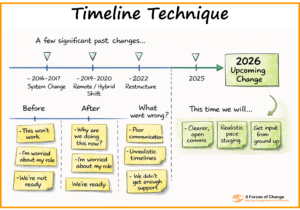How many of our best intentions to change are short-lived? How many resolutions to stick to a diet, drive below the speed limit or to maintain a work-life balance melt away?
In my last blog, I looked at how great we are at rationalizing our current behaviour in the face of clear evidence that we really ought to change. But even if we do decide to do things differently, we still suffer defeat at our own hands if we simply alter our behaviours without addressing our beliefs.

Beliefs drive behaviours. If, for instance, I truly believe that “It is up to parents to encourage their kids to study hard at school”, then I will, most likely, adopt the behaviour “Encourage and support my own kids to work hard at school.” On the other hand, if I cut down on fatty food in order to lose weight, what are the chance that of me sticking to my diet if my underlying belief is “Eating whatever I like is one of the great pleasures of life and gives me energy”? By contrast, the belief “Eating just the right quantity of the right food is essential to a healthy, happy life” would be a much more helpful belief on which to build a diet.
Now let’s look at an example of change in the workplace. Suppose you have come to the conclusion, “I need to empower my team and delegate more of my work to them”. However, you also have a sincerely held belief that, “As a manager it is my duty to ensure that none of my team makes errors”. This is likely to be a problem for you. For instance, what happens if you delegate an important task to one of your team and they make hash of it? Your underlying belief makes it hard not to step in and take over the task. So, what might be a more useful belief? Perhaps, one along the lines of, “It is my job to coach and support my people to develop…and errors are part of the learning process.”
Beliefs underpin our behaviours, but too often we make sincere efforts to change our behaviours without tackling the underpinning beliefs. It is easy enough to stick to the speed limit for a while, but what happens when we’re late for a meeting and the road looks clear? How soon do we revert to our old behaviour of sticking to the speed limit, but only if we think we might get caught?
Shifting our beliefs is harder than changing behaviours, but simply changing behaviours often turns out to be a short-term fix. Helping people to change their underlying beliefs will be covered in my next blog…






